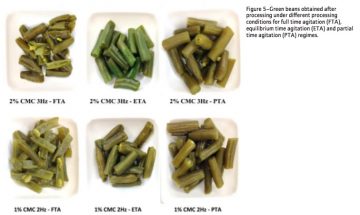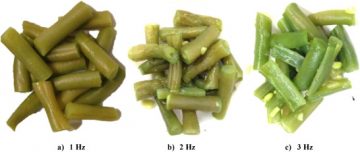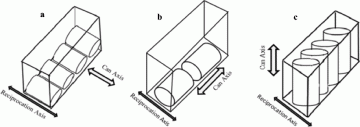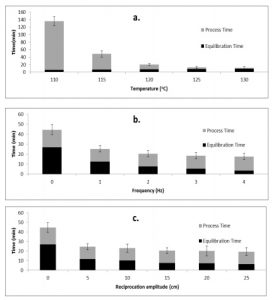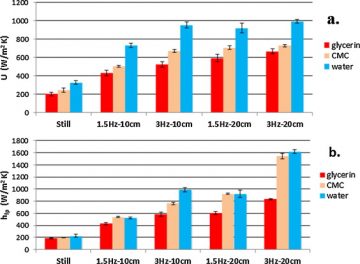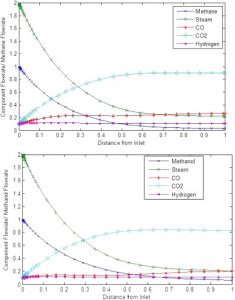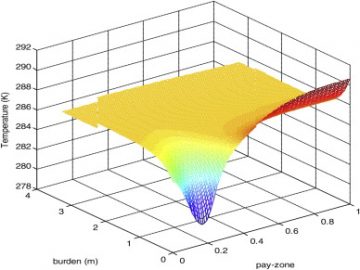A Controlled Agitation Process for Improving Quality of Canned Green Beans during Agitation Thermal Processing
Article in Journal of Food Science 81(6) · June 2016 DOI: 10.1111/1750-3841.13308 Anika Singh, Anubhav Pratap Singh, Hosahalli S. Ramaswamy
Quality Retention Enhancement in Canned Potato and Radish Using Reciprocating Agitation Thermal Processing
Article in International Journal of Food Engineering 12(5) · July 2016 DOI: 10.1515/ijfe-2015-0276 Jia You, Anubhav Pratap Singh, Anika Singh, Hosahalli S. Ramaswamy
Effect of processing conditions on quality of green beans subjected to reciprocating agitation thermal processing
Fig. 3. Effect of reciprocation frequency on visual quality of canned green beans processed with 2% CMC at 130 °C Article from Food Research International 78:424-432 AnikaSinghAnubhav, PratapSinghHosahalli, S.Ramaswamy
Effect of can orientation on heat transfer coefficients associated with liquid particulate mixtures during reciprocation agitation thermal processing
Figure 1: Schematic of the three possible orientations inside the reciprocating cage showing the placement of experimental can with its longer axis: a horizontally along the reciprocation axis (HA), b horizontally perpendicular to reciprocation axis (HP), and c vertical (V) Article from Food and Bioprocess Technology 8:1405-1418 Anubhav Pratap Singh, Hosahalli S Ramaswamy
Computational techniques used in heat transfer studies on canned liquidparticulate mixtures
Article from Trends in Food Science & Technology 43:83-103 AnikaSingh, Anubhav PratapSingh, Hosahalli, S.Ramaswamy
A refined methodology for evaluation of heat transfer coefficients in canned particulate fluids under rapid heating conditions
Fig. 5. Effect of reciprocating conditions on heat transfer coefficients in reciprocation agitation thermal processing: (a) overall heat transfer coefficient (U); (b) fluid-to-particle heat transfer coefficient (hfp). Article from Food and Bioproducts Processing 94:169-179 AnikaSingh, Anubhav PratapSingh, Hosahalli S.Ramaswamy
Modification of a static steam retort for evaluating heat transfer under reciprocation agitation thermal processing
Article from Journal of Food Engineering 153:63-72
Steam reforming of methane and methanol in simulated macro & micro-scale membrane reactors: Selective separation of hydrogen for optimum conversion
Fig. 12. Concentration of reactants and products at various axial positions of the micro-scale membrane reactor. Article from Journal of Natural Gas Science and Engineering 18:286-295 Anubhav PratapSingh, SiddharthaSingh, SomenathGanguly, Anand V.Patwardhan
Effect of heat diffusion in the burden on the dissociation of methane in a hydrate bearing formation
Fig. 4: Temperature profile after 3 days considering heat diffusion in the burden, strength of the heat source as 1000 W/m2, and no heat flow at the depressurization well Article in Journal of Natural Gas Science and Engineering 16:70-76 B.G.Vinay Kumar, Anubhav P.Singh, SomenathGanguly
